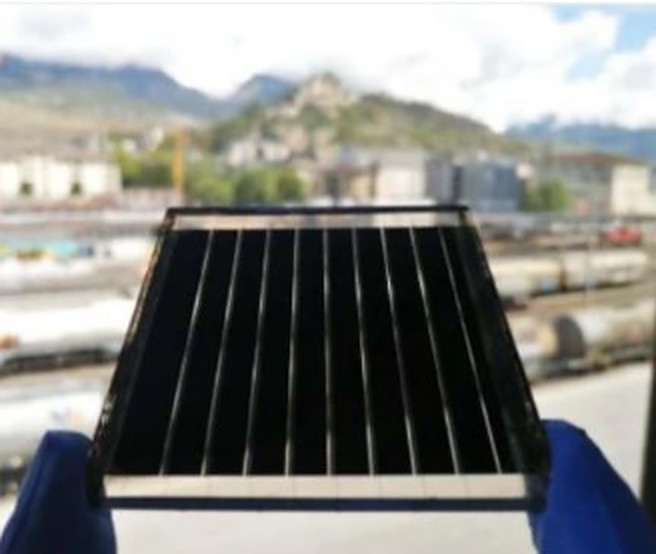Scientists at the Kaunas University of Technology (KTU) in Lithuania have developed a photovoltaic module with 23.9% efficient solar cells based on a two-dimensional (2D) layer of perovskite.
The solar cell's perovskite film was passivated with different isomers of phenylethylammonium iodide, which increase the energy barrier of the 2D perovskite formation and prevents the bulky organic cations from entering the perovskite lattice even at elevated temperatures.
“These isomers have the same molecular formula but different arrangements of atoms in space, determining the probability of 2D perovskite formation,” the researchers explained, adding that the isomers showed a comprehensive passivation effect and suppressed non-radiative recombination and improved interfacial charge extraction.
The mini module was designed with an active area of 26 cm2 and reached a power conversion efficiency of 21.36% under standard radiation conditions. It also exhibited an open-circuit voltage of 10.30 V, a short-circuit current of 2.71 mA cm−2, and a fill factor of 76.40%.
“This is one of the highest efficiencies reported so far for perovskite solar modules,” the Lithuanian group specified. “The high module performance originates from the good uniformity of the perovskite layer, the reduced trap density, and suppressed interfacial recombination.”
The device was also found to offer operational stability of over 1000 h.
A full description of the passivation technology can be found in the paper “Tuning structural isomers of phenylenediammonium to afford efficient and stable perovskite solar cells and modules,” which was recently published in nature communications. “This study demonstrates that altering functional groups and chemical structures should be an effective strategy to develop novel organic cation passivators with continuous and stable passivation effect, which may pave the way for scaling up perovskite photovoltaics to sizes of commercial relevance,” the authors of the study concluded.
This content is protected by copyright and may not be reused. If you want to cooperate with us and would like to reuse some of our content, please contact: editors@pv-magazine.com.




1000 h. It is all there. Good for talking but not for wotking